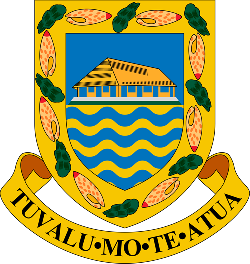Areas of Expertise
Project Status
Filter by project scope:
Project Type
Results
Image
Project Coordinator : Mr. Tomu Hauma Since 2015, under the sponsorship of the New Zealand Government, the Strengtening Water Security of Vulnerable Island States Project (shortened for the Water Security Project) started off in five island countries - Cook Islands, Kiribati, Republic of the Marshall Islands (RMI), Tokelau and Tuvalu. The project was particularly ignited by the 2011 drought epidemic in Tuvalu and thus developed to not only address impacts of drought in the five island countries but to also at least support and resolve other hazards on drinking water and its supplies. Such support has to be address through the project team efforts and the existing network of water related institutions on each of the five island countries. Thus both the Government and Civil Societies have their own part to play in the mix of addressing water problems in each of the five implementing countries. The project is regionally coordinated by the SPC, and implemented at the national level by each of the five island countries.
ObjectivesThe key objective of the project is to address impacts of drought and other hazards on drinking water supplies in each of the five implementing countries - Cook Islands, Kiribati, RMI, Tokelau and Tuvalu
Status: Completed
Project Coordinator: Susan TupulagaContact: susapaul@gmail.com ISAAC project is a 3 year project commencing in 2017 and funded by USAID and jointly implemented by SPC, SPREP and PIFS covering 4 countries including Tuvalu, Fiji, Palau and Samoa. The main focal areas of ISAAC project are awreness and capacity building, policy development, climate change adaptation divided across three main key result areas; 1. Intergrated Institutional frameworks and national capacity stregthened2. Accessing Climate Finance3. Regional cooperation and corrdination and stregtheningSome of the project's achievements include; 1. supporting the NIE accrediation process in providing assistance to develop tools under Ministry of Finance2.Supporting review of Environmental Impact Assessment3. Establishment of Environmental Social Safeguard (ESS) as one of the requirement for NIE Accreditation process4. Development of Payout policy and methodology for the Tuvalu Survival Fund5. Supporting 20 students to persue Project Management IV Courses6. Supporting the development of the Climate Change Web Portal7. Contribute and participate in Awareness Activities8. Establish Data and Information for vulnerable sectors (in progress)9. Awareness activities on the tools/policy and regulation developed (for 2019)
Objectives - is to strengthen the national institutional capacity of Pacific Islands Countries (PICs) to effectively plan, coordinate and respond to the adverse impacts of climate change and disaster risk. It is intended to build on existing multi-sector, whole of iland approaches that have been implemented successfully in other Pacific Countries.
Status: Completed
Project Coordinator: Alamoana TofuolaFinance Assistance: Betty FousagaThe Managing Water Scarcity through Strengthened Water Resources Management project respondsto MFAT’s Water Security Strategic Approach to address the climate change-related water securitychallenges faced by Pacific Island Countries. The Project is being implemented by the PacificCommunity (SPC) over the three-year period from July 2020 to June 2023, and.builds upon the achievements, learnings, and enabling environments established through the MFAT-funded Strengthening Water Security of Vulnerable Island States (SWSVIS) project. This Projectwas also implemented by SPC and from 2015 to 2019 supported a range of activities to strengthenthe availability, reliability and quality of drinking water in vulnerable and isolated communities inthe Cook Islands, Kiribati, the Marshall Islands, Tokelau and Tuvalu. The SWSVIS project workedacross multiple sectors within the participating countries to help develop and implement a suite ofpractical measures and tools that strengthened local capacity to anticipate, prepare for and respondto the impacts of drought. The new Water Scarcity Project represents a significant scaling up andrefocusing of the activities implemented under the SWSVIS project. It aims to provide support tospecific water-scarce communities to actively manage resources to improve resilience, in order that:• Communities have the infrastructure and capability required to access, collect and store water.• Communities understand, protect and maintain water resources and infrastructure; and• Communities are sustainably using water resources and managing risk.Implementation of the Project is now commencing in each of the five atoll nations of the Cook Is-lands, Kiribati, the Marshall Islands, Tokelau and Tuvalu.
Status: Current
